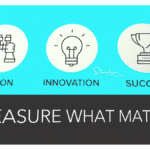Years ago, I was working on a consulting assignment involving a company’s customer service challenges. The company decided the answer was to throw bodies at the situation. The assumption? More people = Better service. At some point, I was talking with the senior vice president of operations about the decision. And I asked, “Will there come a time when the company examines the additional staffing numbers versus the scheduling system?” He looked at me a bit puzzled.
I completely understood why the company decided to hire more people. They needed to do something immediately.  But you guys know hiring more people doesn’t automatically mean better service. It means more people on the payroll. The real answer is having enough people at the right times. That’s a scheduling issue, not a staffing issue.
But you guys know hiring more people doesn’t automatically mean better service. It means more people on the payroll. The real answer is having enough people at the right times. That’s a scheduling issue, not a staffing issue.
I was reminded of this story after reading an interview with Seth Godin titled, “If You’re an Average Worker, You’re Going Straight to the Bottom”. It’s a quick, interesting article you might want to check out.
The conversation today is about having enough jobs and reducing the unemployment rate. At some point, the discussion will shift to having enough qualified people for open positions. That’s a skills issue.
The skills gap conversation has been going on for years. People, companies and government agencies have been predicting doom and gloom for at least a decade. The Great Recession suspended the discussion. But it’s coming back as evidenced by the recent article Role Reversal: Employers Say They Can’t Find Workers.
For companies, this is an excellent time to resurrect the skills conversation. Are your current employees ready for the future growth of your organization? What skills do they need to acquire to help your business remain competitive? Is there a plan in place to provide employees with the skills they need in the future?
For employees, it’s time to do some homework. Do you have a clear understanding what your profession will look like 5 years from now? How do your skills stack up? Are there things you can do to prepare yourself for future opportunities?
And let me toss one more partner into this conversation – education. The business and education communities will need to work together to make sure the skills needed for a person to enter the workforce are being taught in school.
None of us can afford to sit on the sidelines. Bridging the skills gap will take a collaborative effort. We need to plan for it today.







david k waltz says
Sharlyn,
The education point is one I have been thinking a lot about these days – it seems with more rapid pace of change the ole – go to school for 4 years, work for 30 will not work (has not worked) anymore.
I wonder how that model will evolve?
Danica says
Sharlyn,
I am finding that many employers will not consider workers who have been out of work for 6 or more months. That translates as a pile of talent in the trash bin.
Sharlyn Lauby says
@David – Thanks for the comment. I’m thinking the same thing. At some point the business community is going to push back and demand education to adjust their curriculum.
The other option is to push certain subjects to individuals to learn on their own – example: you don’t have to take driver’s ed to get a license. You can, but it’s not mandatory. Will some subjects be dropped from traditional education and become the responsibility of the individual?
@Danica – Agreed, employers are missing out on a tremendous amount of talent. It does make me wonder how applicants are reflecting that time on their resume.
Charmie Q. says
You are so right in saying that there’s gotta be a scheduling issue and not a staffing issue. How do you open the eyes of your employer when that situation happens?
Thanks for this. Learned so much!
-Charmie
Danica says
Advice broadcast by Monster.com/Yahoo! suggests to avoid appearing “sneaky” by publishing the dates of employment on resumes. Considering mainstream job seekers are the vast majority and seek advice from online articles, word-of-mouth, and YouTube videos; a large number of applicants will take the article’s advice without question.
So what can the over-6-month-unemployed do? Network. Reflect volunteer hours and other activities to reassure employers that are competent individuals while unemployed. They must keep sending out the resumes until one makes it past the filters, into the hands of a interviewer that will overlook imperfections and say “you’ll do.”
Ref: http://career-services.monster.com/yahooarticle/resume-mistakes-pet-peeves#WT.mc_n=yta_fpt_article_resume_mistakes_trash
David Smooke (@DavidSmooke) says
“I believe Every person is born with Talent.”
The Seth Godin article depresses human’s role to machine. Marx. Grow Up. Do you complete tasks like an ordered iMac? Or Is it your computer?
…The conversation today is about having enough jobs…
People Listen, the tools at our finger tips are more empowering than ever.
“The first step in winning the future is encouraging American innovation. None of us can predict with certainty what the next big industry will be or where the new jobs will come from. Thirty years ago, we couldn’t know that something called the Internet would lead to an economic revolution.”
So yes, I absolutely find “Do you have a clear understanding what your profession will look like 5 years from now? ” to be an asinine question that I would only ask someone who negotiates for a living.
All Talent has Skill.
Sharlyn Lauby says
@Charmie – Thanks for the comment. As far as opening the eyes of a company, is there an opportunity to ask a question (versus making a statement)?
@Danica – Thanks for sharing! I’m a fan of promoting volunteer time. You can learn new skills and accomplish projects that would transfer into the workplace.
@David – Thanks for sharing your thoughts. Obviously, we don’t agree on this one. I think of human resources as an example. Five years ago, most HR pros didn’t know about social media, mobile recruiting, etc. Today they need to understand it. And that’s just one isolated example. Even the best talent needs to continuously upgrade their skills to meet the demands of the changing marketplace.
Bruce Lee says
Full disclosure – I am in PR for Mercer. Those interested in this topic might find our latest report we conducted with the WEF and presented in Davos – it is about global talent mobility and its impact on economic growth – you can see the research and case studies at http://www.mercer.com/globaltalent
David Smooke (@DavidSmooke) says
@Sharlyn
I in no way meant to say: Talent Does Not Need to Upgrade Their Skill.
What I am saying is thinking on a five year road map in no way helps your skills for today or tomorrow. I pointed to Obama’s quote on the internet to explain best is based on conditions of the day. But to use your example, if HR pros had their five year plan set, and the best didn’t change their plan when the iPhone came out, the best would not practice mobile recruiting.
The heart of my comment is where I started, and I don’t understand how you can obviously disagree with this, “I believe Every person is born with Talent.”
Aad Boot says
Great Article, Sharlyn! Especially your point on the need to align business strategy/objectives with the required skills (or broader, with the required competences), rather than with numbers of employees. And the way education is playing a major role in this. A truly global challenge for the USA, Europe, as well as emerging countries. Thanks for sharing!
Calli says
Sharlyn, first off, high five to you for writing such a great article 🙂 This is something that is over looked many many times. It’s an easy bandaid to a problem. It’s a quick fix to just throw money and more ppl at the problem instead of digging deeper and finding the root of the issue. It’s a very ‘head in the sand’ approach.
Unemployment is a very sensitive issue today as we hear about it everywhere we turn. It’s this big problem that we feel we all must do our own part to help solve. And unfortunately hiring more ppl is not the answer. This article starts look past that idea and like you said ” look for qualified people for open positions.” which you clearly outline is a skill issue not a staffing issue.
Finding the most all around qualified person for your company’s culture is critical to the company’s success and the worker’s happiness. There is a difference between a qualified candidate and a quality candidate. Thanks for the share:)
We are more than just a resume.
Rustem Safin says
I like how this article bridges the HR planning and career planning. Personally, I don’t really see myself being able to predict the profession in the next 5 years. I know that from career planning perspective you want to try to envision yourself in 5 years time, and that may provoke some strategical advantage considerations, but those are all guesses. How would you suggest is the best way to go about thinking about the profession in 5 years time? I have chosen Human Resources as a profession.
Sharlyn Lauby says
It’s a great question. A couple things I do to get some insight are 1) look for trends. What is everyone talking about right now? It can be easy to dismiss the conversation as the “buzzword du jour” but it gives you the opportunity to decide if all the conversation has merit.
And 2) listen to your critics. By that, I mean listen to the people who think the opposite of you. As a political science major, I learned a lot from politicians who say “I read what the other political parties are talking about. It’s important to hear all the arguments.”
Thanks for the comment!